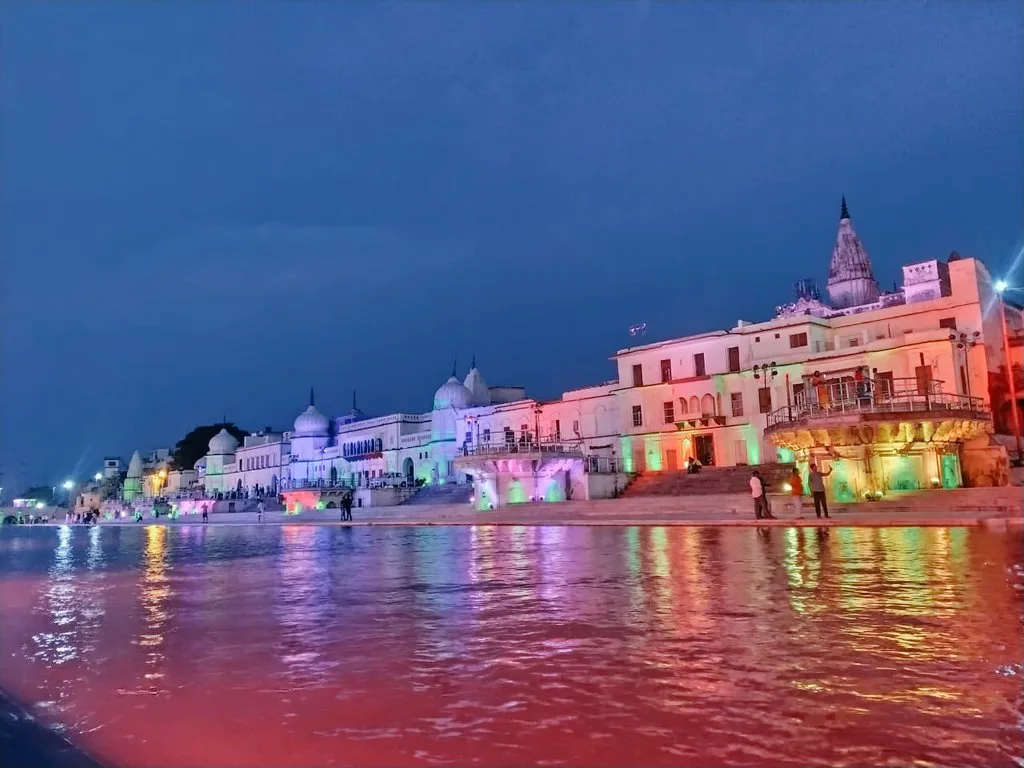Rama Navami, a vibrant Hindu festival, commemorates the birth of Lord Rama, revered as the seventh incarnation of the preserver god Vishnu. This celebration transcends mere birthday festivities; it’s a time to reflect on Rama’s exemplary qualities and the values he embodied.

Birth Day of Lord Rama: Rama Navami
Why We Celebrate Ram Navami
Rama Navami holds immense significance for several reasons:
- Triumph of Good over Evil: The Ramayana, the epic tale that chronicles Rama’s life, depicts a constant struggle between good and evil. Rama, the epitome of righteousness, ultimately vanquishes the demon-king Ravana, symbolizing the victory of light over darkness. Celebrating Rama Navami reinforces the importance of upholding moral principles in the face of adversity.
- Ideal King and Person: Rama is considered the ideal king – just, compassionate, dutiful, and a protector of his people. His life serves as a moral compass, guiding followers towards virtuous living and adherence to dharma (righteous conduct).
- Reincarnation of Vishnu: For Vaishnavites, followers of Vishnu, Rama Navami holds special significance. It’s a day to celebrate the divine descent of Vishnu himself, who took human form to restore balance and righteousness in the world.

When is Rama Navami Celebrated?
Ram Navami falls on the ninth day (Navami) of the bright fortnight (Shukla Paksha) of the Hindu month of Chaitra, which typically falls in March or April according to the Gregorian calendar. In 2024, Rama Navami was celebrated on April 17th.
Festivities and Traditions
Rama Navami is marked by a multitude of practices that vary slightly across regions, but all aimed at devotion and remembrance:
- Fasting: Devotees may observe a full or partial fast on Rama Navami, a sign of dedication and self-restraint.
- Abhishek (Bath Ceremony): Idols of Lord Rama, Sita (his consort), Lakshmana (his brother), and Hanuman (his devoted follower) are elaborately bathed with milk, panchamirta (a mixture of five ingredients), and sacred water.
- Puja (Worship): Homes and temples alike are adorned with flowers and decorations. Devotees offer prayers, chants, and hymns in honor of Lord Rama. Special offerings like fruits, sweets, and lamps are presented.
- Ramayana Katha (Recitation): The Ramayana holds immense significance during Rama Navami. Temples or homes may host recitations of the epic by learned scholars or kathakars (storytellers). Hearing these tales reinforces the ideals associated with Rama and inspires devotees.
- Ram Leela (Drama): Dramatic enactments depicting scenes from Rama’s life, particularly his battles and triumphs, are staged in various locations. These vibrant performances, known as Ram Leela, keep the stories alive and create a sense of community and shared devotion.
- Ratha Yatra (Procession): In some regions, especially South India, grand chariot processions featuring beautifully decorated chariots carrying idols of Rama, Sita, Lakshmana, and Hanuman take place. Devotees throng the streets, singing devotional songs and celebrating their beloved deity.
- Community Feasts: Many communities organize large-scale feasts (bhandara) to share blessings and promote social harmony.
Beyond Religious Observances
Rama Navami transcends religious boundaries. It’s a time for families and communities to come together, strengthen social bonds, and celebrate shared cultural heritage. Traditional sweets and delicacies are prepared, and people visit friends and relatives, exchanging greetings and sharing the spirit of the festival.
Rama Navami in the Global Context
Celebrated not only in India but wherever the Hindu diaspora has settled, Rama Navami is a unifying force. Temples across the world observe similar traditions, fostering a sense of belonging and connection despite geographical distance. The Ramayana’s universal themes of good versus evil, devotion, and filial piety resonate with Hindus worldwide.
Rama Navami is more than just a birthday celebration. It’s a vibrant festival that reminds us of the timeless values embodied by Lord Rama – righteousness, courage, devotion, and adherence to duty. The festivities not only reinforce these ideals but also create a sense of community and cultural belonging. As devotees come together to celebrate Rama’s birth, they carry forward his legacy, reminding us to strive towards a life of virtue and purpose.
.
read more
.
